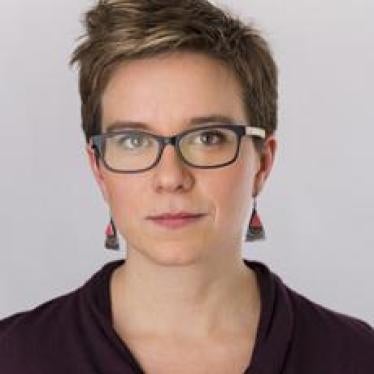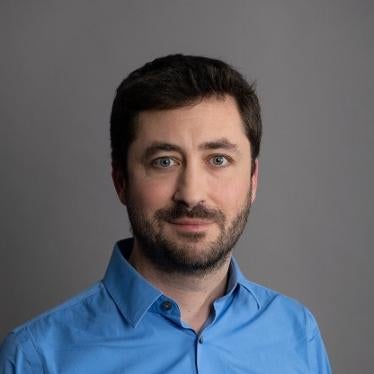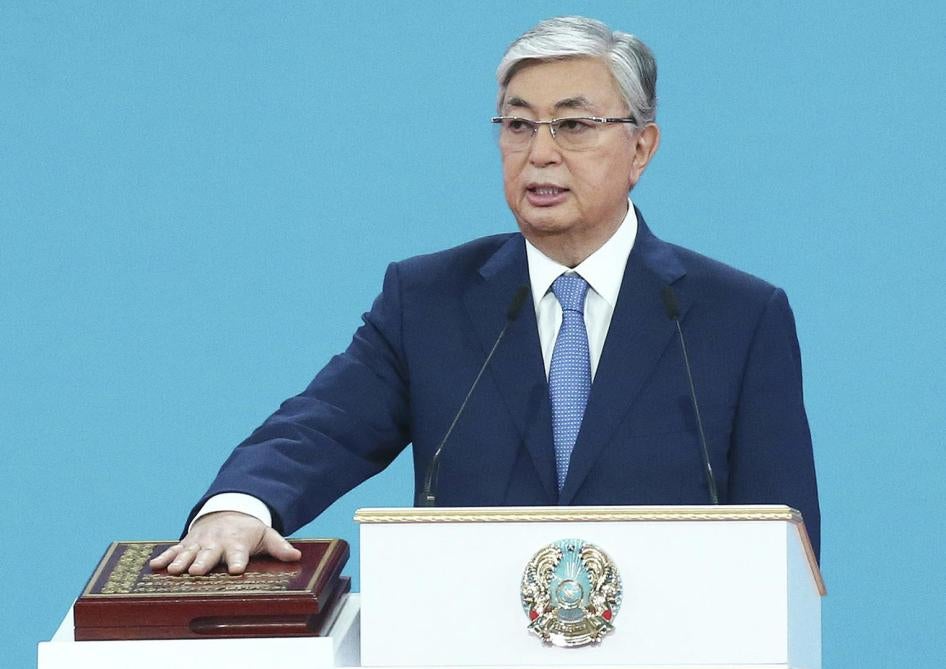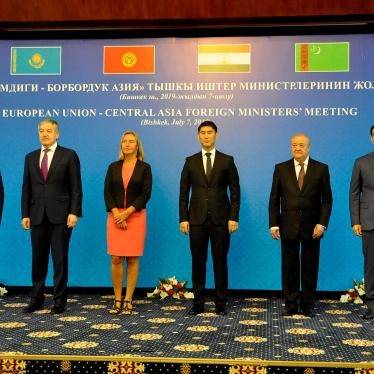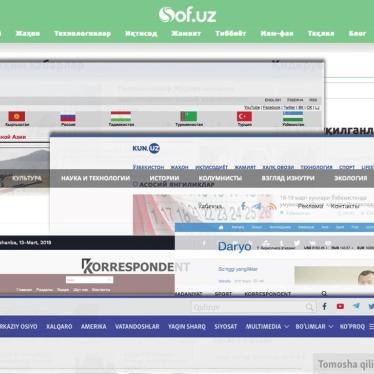President Kassym-Jomart Tokayev of Kazakhstan is no stranger to making human rights and political reform pledges and his administration knows well that 'talking the talk' on human rights in high level meetings with Western diplomats is one way to stave off potential criticism.
There is little doubt he will take this approach on his visit to Brussels on Thursday and Friday (25-26) November, but EU officials should push back.
The EU has invested significantly in its relations with Kazakhstan, the most powerful economy in Central Asia and a country eager to engage internationally. The Enhanced Partnership and Cooperation Agreement between Kazakhstan and the EU, which entered into force in March 2020 and includes human rights provisions, deepened relations.
But the European Parliament has regularly expressed concern about human rights in Kazakhstan, most recently in February.
So the EU has an opportunity, and leverage, to address important human rights issues during president Tokayev's visit – and to expect real answers.
There's a moral imperative to do so. If we take an honest look past the Kazakh government's promises for reforms, there's little to show for all of the rhetoric. Kazakhstan remains deeply authoritarian and undemocratic, with basic human rights violated regularly.
It has never had an election deemed free and fair by credible international observers. Kazakh authorities show unwavering intolerance towards any group, movement, or party critical of the government, and have arbitrarily applied abusive 'extremism' accusations against political opposition groups to send their proponents to court or to prison.
Many people accused of affiliation with the Democratic Choice of Kazakhstan, banned as "extremist" since 2018, and the Koshe (Street) Party, banned in 2020, have faced politically motivated criminal charges. The court decisions to ban the groups failed to show any evidence that they had advocated or engaged in violent extremism.
Kazakhstan authorities take a similarly heavy-handed approach to media and speech freedoms, moving to control or silence those who criticize the government.
In May, an Instagram-user faced a criminal investigation for "disseminating false information" on his openly satirical account. Just weeks ago, the popular website of HOLA News was blocked for several days following an article commenting on the alleged links between former president Nursultan Nazarbayev and offshore companies exposed by the Pandora Papers.
Parliament is considering a draft law that would require social media platforms, under the pretext of protecting children, to register a local presence in Kazakhstan and comply with the government's content take-down orders.
The case of our civil society colleague Max Bokaev speaks for itself. Bokaev was released in February after serving an unfair five-year prison sentence for peacefully protesting against proposed land reforms. But as soon as he was released, the authorities imposed new restrictions on him preventing him from engaging in civil society activities.
No demonstrations, but wife-beating is legal
Despite a supposedly reformed peaceful assembly law, protests in Kazakhstan continue to be routinely dispersed and participants fined or detained. The authorities deny registration to independent trade unions, putting workers who try to defend workers interests, including by organising strikes, at serious risk of unfounded sanctions.
President Tokayev has spoken publicly about the importance of protecting women's rights, yet there is still no commitment to criminalise domestic violence.
Although security and Afghanistan are likely to feature heavily on the EU's agenda with president Tokayev, it is important for EU leaders not to tone down their concerns on the country's flawed human rights record. Regional security concerns and domestic human rights concerns should not be mutually exclusive. Pushing human rights concerns under the carpet only risks paving the way for more abuses, insecurity, and instability.
If they are serious about their commitment to promote rights in central Asia, EU Commission president Ursula Von Der Leyen and Council president Charles Michel should make it clear in their talks with president Tokayev as well as in any public comments on his visit that unfulfilled reform promises and talk alone aren't good enough for the EU.
They should press their counterpart to stop using broadly defined "extremism" charges to lock up peaceful critics; to let civil society, independent trade unions, and the media operate freely; and to protect women and girls by explicitly criminalising domestic violence. This is the bare minimum Kazakh citizens can expect from the European Union.
